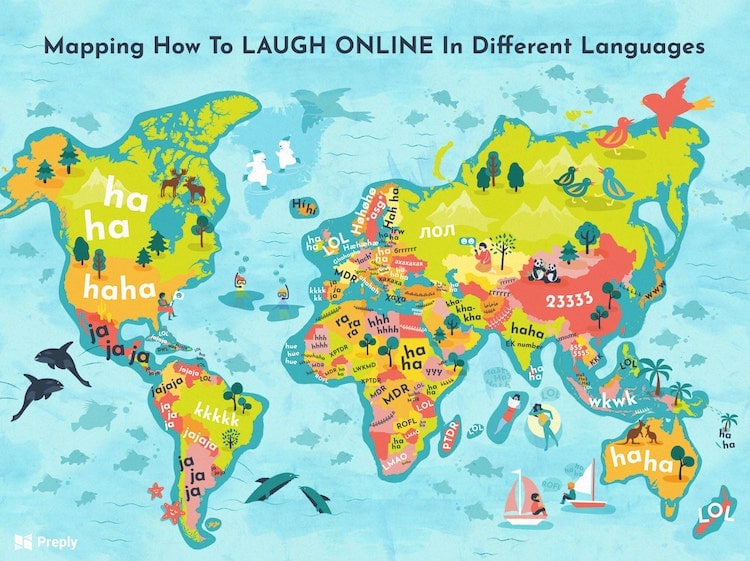When it comes to in-person conversations, laughter is universal.
You may not speak the same language, but you might understand one another through laughter.
But have you ever thought about laughing online in different languages?

Language-learning websitePreplycompiled a list ofhow to laugh online in 26 languages.
For instance, in Thai, you may write 55555 instead of Haha.
Scroll down for more ways that people laugh online in different languages.
This written form of laughter is universal within the Arabic speaking community though.
English
In English, it is common for people to write variations of haha (e.g.
hahaha or bahaha or haaaa) as a response to something funny or hehe for a little mischievous giggle.
French
The most common is MDR, which means Mort de Rire (dead laughing).
To laugh even harder, there’s the abbreviation PTDRPete de Rire.
Greek
Greek online laughter has all kinds of abbreviations.
Lol in Greek letters is , but more typical is , which is haha.
For jokes or sarcastic laughter, Greek speakers prefer .
That last one is situational, though; xoxoxo also means hugs and kisses in Greek.
There’s also the sneaky laugh (cece), and the female giggle, spelled (cici).
An evil laugh is (buxaxa).
Indonesian
The Indonesian spelling may have come about due to the languages' keyboard layout.
Korean
In Korean, is common to write laughter as(kkk) and(hhh).
For the most part, though, they use more English slang like haha.
Spanish
Laughing is represented with jajaja, but you also have options.
To express irony, Spanish speakers use jejeje, or jijiji for a more mischievous laughter.
Other less universally common ways that laughter is displayed is jsjsjsjs and weqeqwqewqew.